More current then ever - profound encounter in Alexandroupolis
- Written by Portal Editor
On our way to the Balkans, we arrived again at the campsite in Alexandroupolis as part of our project tour. The event we were about to encounter here was almost 10 years ago, but its explosiveness is more relevant than ever. It shows once again the horror of terror, violence, war and the consequences of flight and migration.
While driving to the campsite, we noticed a heavily loaded Land Rover on the road that also seemed to be looking for a place to spend the night. But more on that later.
Direction Canakkale - wait for the bridge
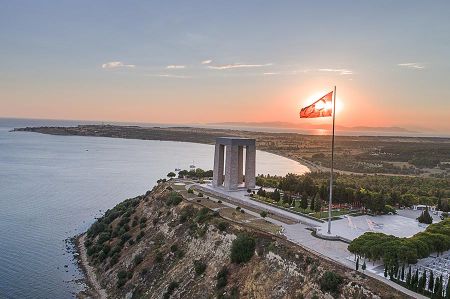 We left the Oba campsite in Güzelbahce near Izmir in the early morning and then drove towards Canakkale, initially following the course of the E87 / D550, another section of which has now been completed as a motorway, which unfortunately made for the really annoying, winding pass does not yet apply at Yesilyurt. Heavy trucks sometimes “block” traffic there extremely. Nevertheless, we reached the port of Lapseki quite quickly for the crossing to Gelibolu. We prefer the crossing in Lapseki to the ferry in Canakkale, as the journey towards Kozan from Gelibolu is easier on the new road. It's only around thirty kilometres to the border with Greece. We were amazed at the queue of waiting trucks, so it was clear that the dispute over border clearance between Turkey and Bulgaria has still not been resolved.
We left the Oba campsite in Güzelbahce near Izmir in the early morning and then drove towards Canakkale, initially following the course of the E87 / D550, another section of which has now been completed as a motorway, which unfortunately made for the really annoying, winding pass does not yet apply at Yesilyurt. Heavy trucks sometimes “block” traffic there extremely. Nevertheless, we reached the port of Lapseki quite quickly for the crossing to Gelibolu. We prefer the crossing in Lapseki to the ferry in Canakkale, as the journey towards Kozan from Gelibolu is easier on the new road. It's only around thirty kilometres to the border with Greece. We were amazed at the queue of waiting trucks, so it was clear that the dispute over border clearance between Turkey and Bulgaria has still not been resolved.
Arrival in Alexandroupolis - a surprise awaits us
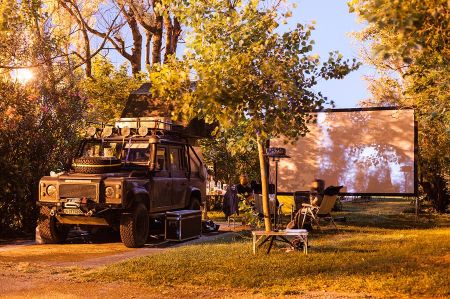 With only a slight delay, all border formalities were completed and the last 40 kilometres to Alexandroupolis were completed. Once we arrived at the campsite, the caravan was quickly set up and set up so that we could take a tour of the site, which we are increasingly liking. And lo and behold, the occupants of the aforementioned Land Rover were also in the process of setting up their roof tent. Early the next morning I wanted to ask about their destinations because the equipment looked like a really interesting expedition.
With only a slight delay, all border formalities were completed and the last 40 kilometres to Alexandroupolis were completed. Once we arrived at the campsite, the caravan was quickly set up and set up so that we could take a tour of the site, which we are increasingly liking. And lo and behold, the occupants of the aforementioned Land Rover were also in the process of setting up their roof tent. Early the next morning I wanted to ask about their destinations because the equipment looked like a really interesting expedition.
No sooner said than done and we were quickly involved in a deep conversation the next morning. The two Swiss filmmakers Philip Spaar and Fabian Senn, together with the cameraman Stefan Schöbi, travelled across the Balkans towards Israel to make a documentary about a documentary about a documentary - that's what you could call the history of the film project "Road to Cinema Jenin". to create. The documentary film "The Heart of Jenin" is presented at various locations along the way and the subsequent reactions and discussions of the audience as well as the diverse venues are documented on film.
Organ release amid the Middle East conflict
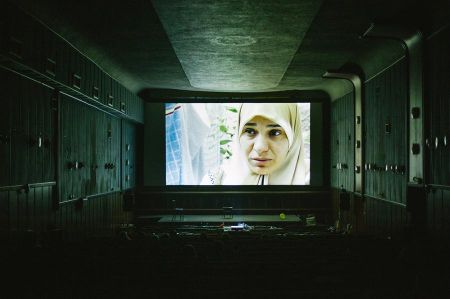 The documentary “The Heart of Jenin” tells the actual story of Ismael Khatib, who has to live in the Jenin refugee camp in the West Bank. His 11-year-old son Ahmed was fatally shot in the head by Israeli soldiers in 2005 because of a realistic-looking toy gun and the resulting confusion with an armed Palestinian. Doctors at the Haifa hospital can only determine that he is brain dead. Father Ismael Khatib must decide whether his son's organs should be donated. With his and his wife's decision he shows humanity in the moment of his greatest pain. By releasing organs in the middle of the Middle East conflict, the Palestinian is enabling Israeli children to continue living. A total of five patients can receive organs from Ahmed Khatib.
The documentary “The Heart of Jenin” tells the actual story of Ismael Khatib, who has to live in the Jenin refugee camp in the West Bank. His 11-year-old son Ahmed was fatally shot in the head by Israeli soldiers in 2005 because of a realistic-looking toy gun and the resulting confusion with an armed Palestinian. Doctors at the Haifa hospital can only determine that he is brain dead. Father Ismael Khatib must decide whether his son's organs should be donated. With his and his wife's decision he shows humanity in the moment of his greatest pain. By releasing organs in the middle of the Middle East conflict, the Palestinian is enabling Israeli children to continue living. A total of five patients can receive organs from Ahmed Khatib.
The film follows Ismael Khatib's visits to three of the five families whose children were saved thanks to Ahmed's organs. The different encounters - with a Jewish Orthodox, a Druze and a Bedouin family, but also with soldiers at the checkpoint - always reflect the situation in the conflict-ridden region.
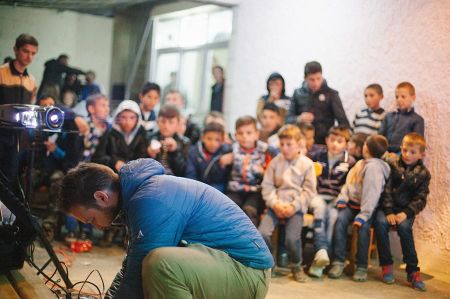 When the film “The Heart of Jenin” was released in 2008, there was a positive media response worldwide, says Philipp Spaar, because for once the focus was not on the escalation of the Middle East conflict, but on the willingness for reconciliation. In many media, the fights between the Israelis and the Palestinians generally dominate the headlines. The city of Jenin in the West Bank has also always been a place of struggle.
When the film “The Heart of Jenin” was released in 2008, there was a positive media response worldwide, says Philipp Spaar, because for once the focus was not on the escalation of the Middle East conflict, but on the willingness for reconciliation. In many media, the fights between the Israelis and the Palestinians generally dominate the headlines. The city of Jenin in the West Bank has also always been a place of struggle.
Jenin is also the name of the neighbouring refugee camp, which was founded by Palestinians in 1953. Jenin was for a long time the stronghold of the Al-Aqsa Brigades, which was responsible for numerous terrorist attacks. In 2002, Israel conducted a military operation to neutralize the Al-Aqsa Brigades. The Refuge camp was also largely destroyed.
Jenin was the stronghold of the Al-Aqsa Brigades for a long time
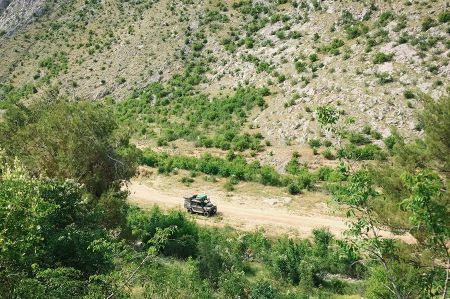 Our film project "Road to Cinema Jenin" explores the question of whether and how reconciliation or forgiveness is possible in times of war. The "Road to Jenin" takes us across the Balkans - a region that has been repeatedly plagued by wars and conflicts in the recent past.
Our film project "Road to Cinema Jenin" explores the question of whether and how reconciliation or forgiveness is possible in times of war. The "Road to Jenin" takes us across the Balkans - a region that has been repeatedly plagued by wars and conflicts in the recent past.
Of course, every war has its own characteristics and a history. The Middle East conflict and the Balkan conflict – like all wars – have one thing in common: it is always the population that suffers. It almost always predominantly affects the civilian population.
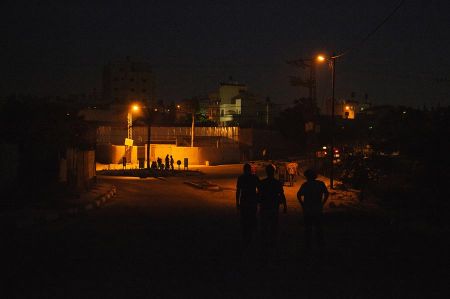 This is also the case in the film “The Heart of Jenin”, which is about Ismail Khatib and his family, whose extraordinary actions must not be forgotten. Many people in the Balkans can tangibly understand their loss and pain during our film screenings; they experienced something similar during the Yugoslavia wars. We show them this film and document their reactions to it on camera. We would like to find out what you think of the conciliatory gesture of the Palestinian protagonist. Find out what gives them the strength to move on and whether they can actually forgive.
This is also the case in the film “The Heart of Jenin”, which is about Ismail Khatib and his family, whose extraordinary actions must not be forgotten. Many people in the Balkans can tangibly understand their loss and pain during our film screenings; they experienced something similar during the Yugoslavia wars. We show them this film and document their reactions to it on camera. We would like to find out what you think of the conciliatory gesture of the Palestinian protagonist. Find out what gives them the strength to move on and whether they can actually forgive.
"The Heart of Jenin" is a documentary film by Marcus Vetter and Leon Geller from 2008. In April 2010, "The Heart of Jenin" received the German Film Prize for Best Documentary. The film is also the starting point of the Cinema Jenin project.
The Middle East conflict and the Balkan conflict have much in common
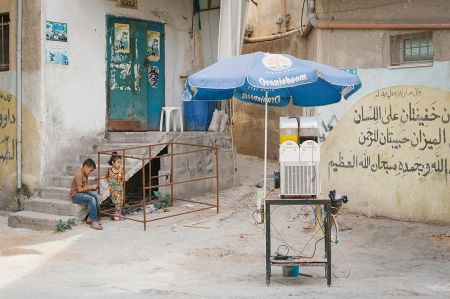 Vetter's cinema documentary "The Heart of Jenin" about the Palestinian Ismail Khatib received the German Film Prize 2010 as Best Documentary. After its completion, Vetter founded the association Cinema Jenin e. V., which has set itself the goal of rebuilding the cinema in Jenin in the West Bank, which has been closed since 1987. Since 2008, Vetter has travelled regularly to Jenin to advance the project; At the same time, he made a film about the project, which was presented in 2012.
Vetter's cinema documentary "The Heart of Jenin" about the Palestinian Ismail Khatib received the German Film Prize 2010 as Best Documentary. After its completion, Vetter founded the association Cinema Jenin e. V., which has set itself the goal of rebuilding the cinema in Jenin in the West Bank, which has been closed since 1987. Since 2008, Vetter has travelled regularly to Jenin to advance the project; At the same time, he made a film about the project, which was presented in 2012.
We are deeply impressed by the project of the three, who swap the usual and actually simple life at home for their idea in order to work on their project, which leads to screenings of the film at dates and places that can be named almost at random, with the reactions of the... Audience can be completely different. It takes real courage and will to undertake such a project. Especially since the project equipment alone could not be managed by the three of them alone; the loan of the vehicle and some other equipment elements were provided by friends of the three.
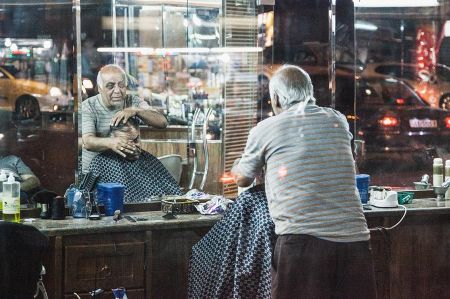 Marcus Vetter also supports the project. We are also spontaneously and out loud thinking about whether it might also be an option to present the project as part of screenings or film nights in Turkey. This is especially true given that Marcus Vetter’s roots lie at least partly in Turkey. Maybe in cooperation with the Goethe Institute and alaturka.
Marcus Vetter also supports the project. We are also spontaneously and out loud thinking about whether it might also be an option to present the project as part of screenings or film nights in Turkey. This is especially true given that Marcus Vetter’s roots lie at least partly in Turkey. Maybe in cooperation with the Goethe Institute and alaturka.
When Philip appears at our caravan during the afternoon and tells us that the three of them have decided to show a film presentation for us in the evening, we are more than happy. So, there is an impressive and profound film evening in Alexandroupolis.
Please read as well:
Abdera - trading center for Constantinople and Rome
Director Göksel Gülensoy - Diving Hagia Sophia
https://www.alaturka.info/en/culture/films/6364-more-current-then-ever-profound-encounter-in-alexandroupolis#sigProIddbdbce7cd2
